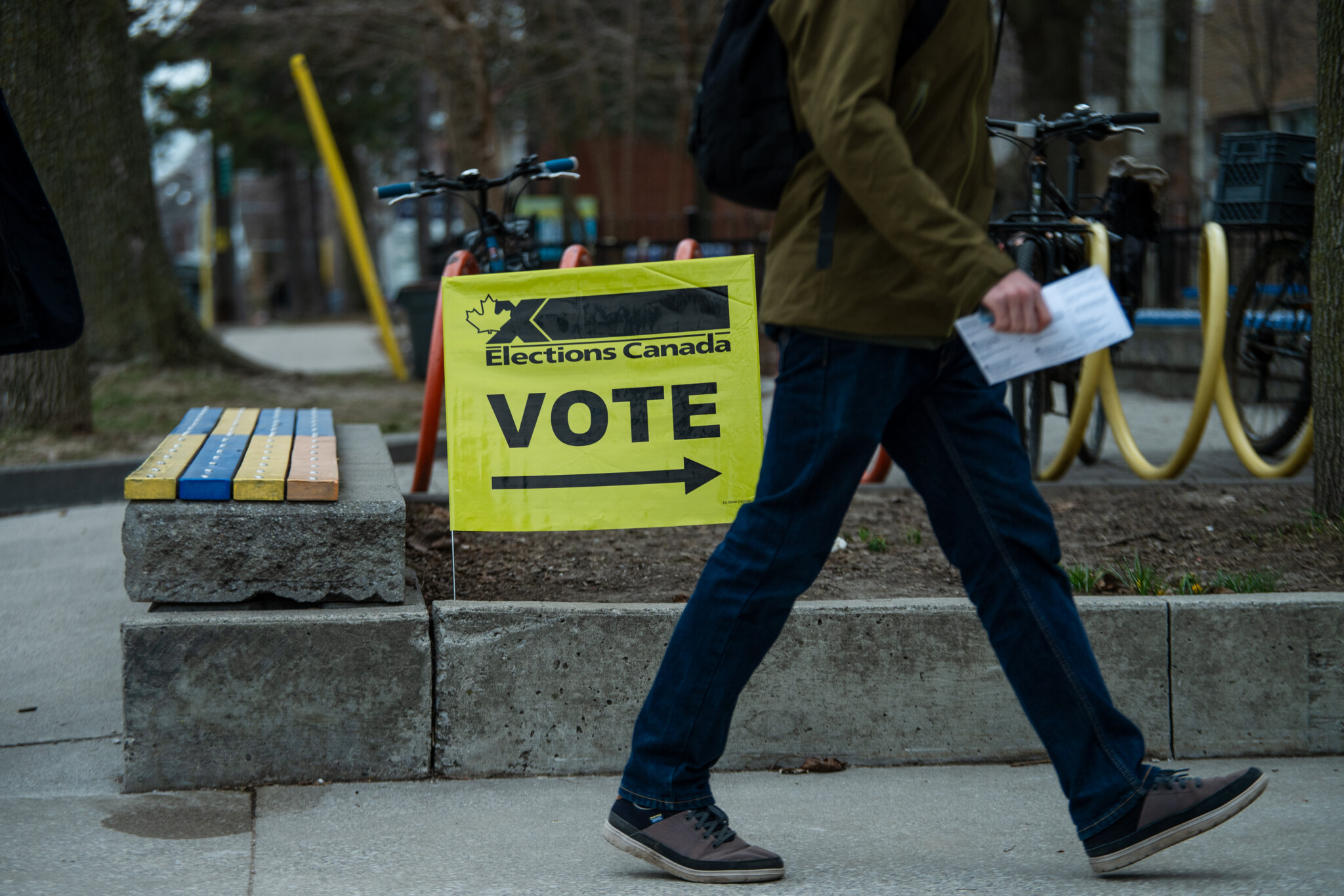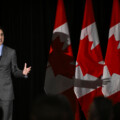My quintessential Canadian rite of passage came in an envelope. Inside, a simple piece of paper bearing my name and address belied a significance far greater than its modest appearance.
Today, that slip of paper will usher me into a ritual familiar to countless Canadians but entirely new to me. Five months after becoming a Canadian citizen, I’m finally, at 38, an eligible democratic voter—nearly the same age Joe Clark became prime minister in 1979, just shy of his 40th birthday.
As I mark this milestone, I can’t help but look back to where I came from.
I grew up in mainland China, a country without elections, where the idea of voting is shrugged off as a “Western concept” incompatible with the country’s traditions. The Chinese governance style is steeped in centralized control, which propelled the country’s growth and, as the state boasts, lifted millions out of poverty. But, as a reporter in a country under the tight control of the Chinese Communist Party, I also witnessed and documented the state’s relentless suppression of free speech and civil society.
It didn’t take long before my passion for journalism became a constant source of anxiety. Would I be targeted? How much longer could I do the job without drawing the state’s ire? Did I even have a future in China?
And so in 2018, after seven years as a journalist navigating an increasingly precarious press environment, I left China for Canada. Just before my departure, the official clampdown on civil society and the media intensified, which has continued to this day.
I’m thrilled to cast my first ballot and finally have a say in shaping the society I want to live in.
Becoming a voter
But there’s homework to do. To make an informed decision, I’ve followed election news, tuned into political podcasts, and watched the leaders’ debate. I even told my parents back in China about it—like a child announcing proudly he’s learned to ride a bike.
When my mom recently asked how Canadian elections work, I struggled to explain an electoral system that can feel bewildering to outsiders.
Sure, the concept of “riding” was easy enough for her to grasp. But how would I unpack the intricacies of “strategic voting”? Or explain that we don’t vote directly for the prime minister, but MPs who represent us in Parliament? And what was the right Chinese word for “constituency”? Before long, our conversation veered into a new recipe my mom had recently tried.
For many new Canadians like myself, navigating the voting process isn’t just a learning curve; it’s a vital step toward exercising our full citizenship. And we are ready to show up.
Engaged and ready to vote
New Canadians are expected to turn out in great numbers this year.
According to a recent survey by the Institute for Canadian Citizenship, 92 percent of respondents who became naturalized citizens within the past year plan to vote in this year’s federal election.
The poll identified the affordability and cost of living, health care and housing as their top three concerns. Among the respondents, 36 percent indicated support for the Liberals, while 29 percent favoured the Conservatives. Most strikingly, around 17 per cent remained undecided, double the national average.
My entry into the electoral world is also unfolding at a moment of profound change.
Last year, more than 60 countries went to the polls in what was the largest election year in history. Yet it was also a time marked by an erosion of citizen trust in their public institutions. Across many wealthy nations, confidence in democracy hit a record low, according to Pew Research. Support for once-popular incumbents crumbled under the weight of rising economic anxiety, deepening polarization, and a growing sense that our political leaders are out of touch.
And then there’s Trump. During his first term, the American president initiated a trade war with China. Now, louder and more unhinged than ever, he’s raised a spectre of a crippling global trade war, targeting allies like Canada. While they seem to have relatively subsided for now, his threats have become a central campaign issue in this year’s election, in ways few anticipated.
Also deeply troubling is Trump’s blatant disregard for democratic norms. Within months of taking office, he has gone after America’s elite universities, punished lawyers he deems disloyal, and arbitrarily revoked visas from international students. (The administration said last Friday it would restore terminated visas for hundreds of foreign students after they mounted a legal challenge.) His message: Do what I say or else. The U.S. isn’t China, but Trump’s antics and governance style could have been lifted straight from Beijing’s playbook.
Visions for Canada
I often think back to the parting words from a former colleague, a veteran American reporter who’d spent years covering China. Upon learning of my plans to move to Toronto, he said, “Congratulations, you’re achieving the real Chinese and American dream—moving to Canada.”
A bit tongue-in-cheek, sure. But those words stuck with me, a reminder of the promise Canada holds to millions of would-be immigrants.
As a new Canadian and a first-time voter, I want to live in a country that rewards hard work and ingenuity. I envision a nation that transcends its reputation for niceness to embrace ambition without losing sight of compassion. I want Canada to remain steadfast in its commitment to the rule of law. And to never abandon democracy, for all its imperfections.









